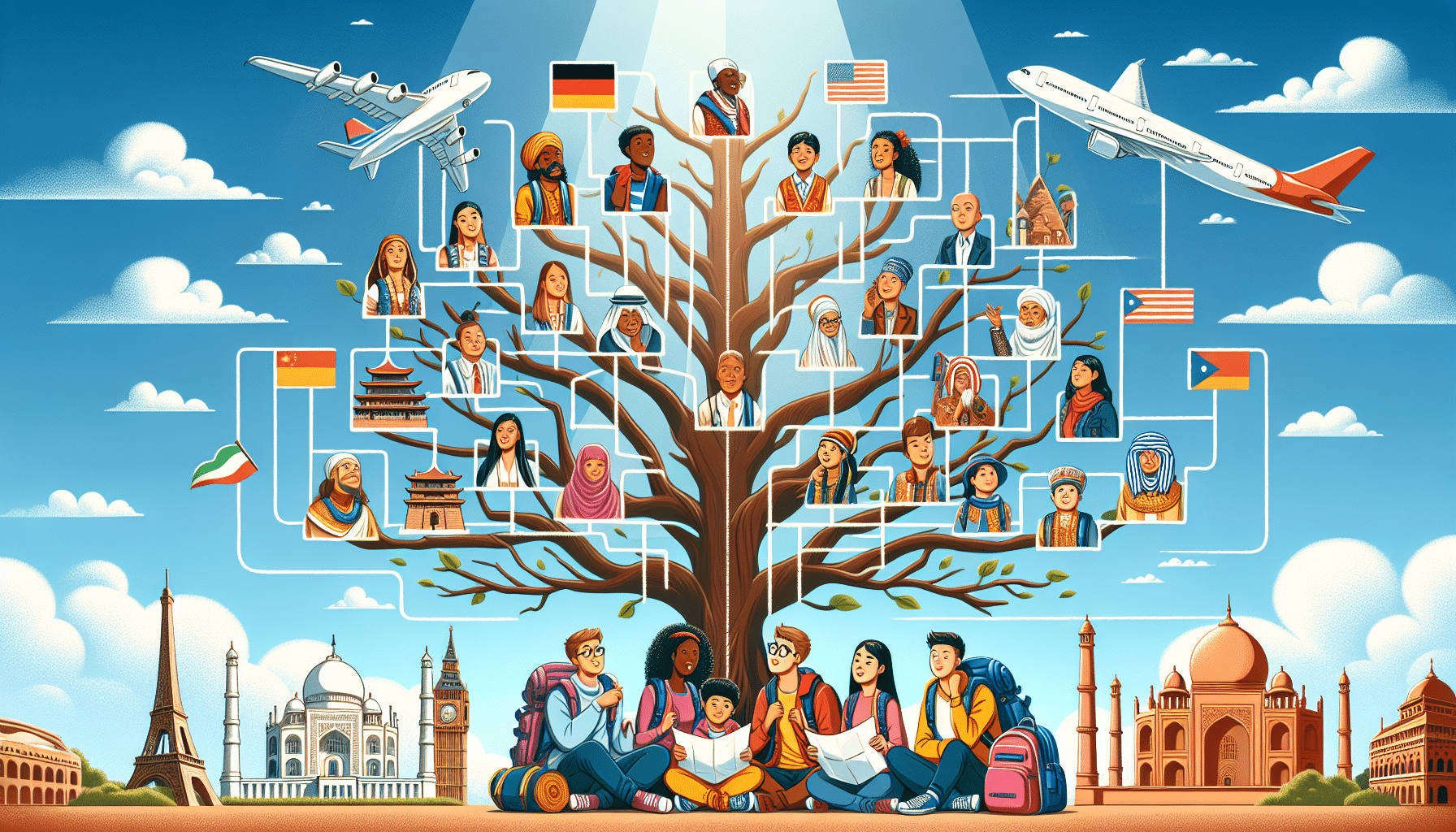The Rise of Ancestry Tourism: Tracing Your Roots Through Travel
In today’s world of global travel, people are increasingly seeking out unique and personalized experiences that allow them to connect with their history and ancestry. This trend, known as ancestry tourism, has gained popularity in recent years as travelers look for ways to learn more about their family heritage while exploring new destinations. Through tracing their roots and embarking on journeys to connect with their past, travelers are discovering a new, meaningful way to experience the world. In this article, we will explore the rise of ancestry tourism and the ways in which it is reshaping the travel industry.
The History of Ancestry Tourism
Ancestry tourism, also known as heritage tourism or genealogy tourism, has been around for centuries. It was first popularized in the Victorian era, when wealthy Europeans would travel to distant lands in search of their family history. These early travelers were motivated by a desire to learn about their family heritage and connect with their ancestral roots. They would visit places where their ancestors had lived, uncover old family records, and even commission paintings of their ancestral homes.
However, with the rise of technology and the internet, the ability to trace one’s ancestry has become more accessible and convenient. Websites like Ancestry.com and MyHeritage.com have made it possible for individuals to research their family history in the comfort of their own homes. This, combined with the increasing popularity of travel, has led to a surge in ancestry tourism in the modern era.
The Appeal of Ancestry Tourism
So why are people so drawn to this type of travel? For many, it is the desire to have a deeper understanding of their heritage and cultural identity. In a world that is becoming more and more connected, people are looking for ways to differentiate themselves and feel a sense of belonging. Connecting with their ancestry through travel allows individuals to learn about their family’s traditions, customs, and even visit the places their ancestors once called home.
Ancestry tourism also offers a more personal and intimate experience compared to traditional forms of tourism. It allows travelers to create their own itineraries, visit lesser-known destinations, and interact with locals on a more personal level. This type of travel is not just about seeing the sights, but about immersing oneself in the culture and history of their ancestors.
The Impact of Ancestry Tourism on the Travel Industry
The rise of ancestry tourism has had a significant impact on the travel industry. Travel companies are now offering specialized ancestry tours, where travelers can visit the exact locations their ancestors lived and take part in cultural activities and events. Hotels and accommodations are also getting in on the trend, offering genealogy packages and services, such as helping guests research their family history and organizing ancestral tours. This is not only appealing to travelers, but it also provides a unique selling point for these businesses in the competitive travel industry.
Moreover, ancestry tourism has also sparked the development of new technologies and services that cater specifically to this type of travel. For instance, companies are now offering DNA testing to help travelers get a more accurate understanding of their ancestry and trace their roots. Mobile apps have also been developed to assist travelers in navigating their ancestral journeys, making the experience more seamless and enjoyable.
Conclusion
Ancestry tourism is a rapidly growing trend in the travel industry and shows no signs of slowing down. It offers a meaningful and unique way for individuals to connect with their past and explore new destinations. As technology continues to advance, and more people become interested in their family history, we can expect to see an even larger rise in this type of travel. So, if you’re looking for a one-of-a-kind travel experience that will deepen your connection with your roots, consider embarking on an ancestry tourism journey – who knows what you may discover along the way.










